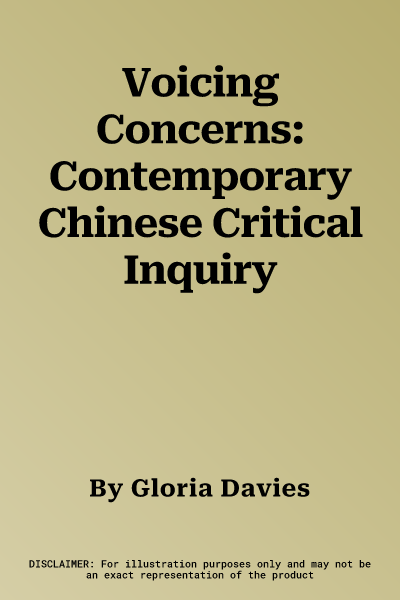Gloria Davies
(Author)Voicing Concerns: Contemporary Chinese Critical InquiryHardcover, 13 June 2001

Qty
1
Turbo
Ships in 2 - 3 days
In Stock
Free Delivery
Cash on Delivery
15 Days
Free Returns
Secure Checkout

Part of Series
Asian Voices
Part of Series
Asian Voices (Hardcover)
Print Length
288 pages
Language
English
Publisher
Rowman & Littlefield Publishers
Date Published
13 Jun 2001
ISBN-10
0742509338
ISBN-13
9780742509337
Description
Product Details
Author:
Book Format:
Hardcover
Country of Origin:
US
Date Published:
13 June 2001
ISBN-10:
0742509338
ISBN-13:
9780742509337
Language:
English
Location:
Lanham, MD
Pages:
288
Publisher: